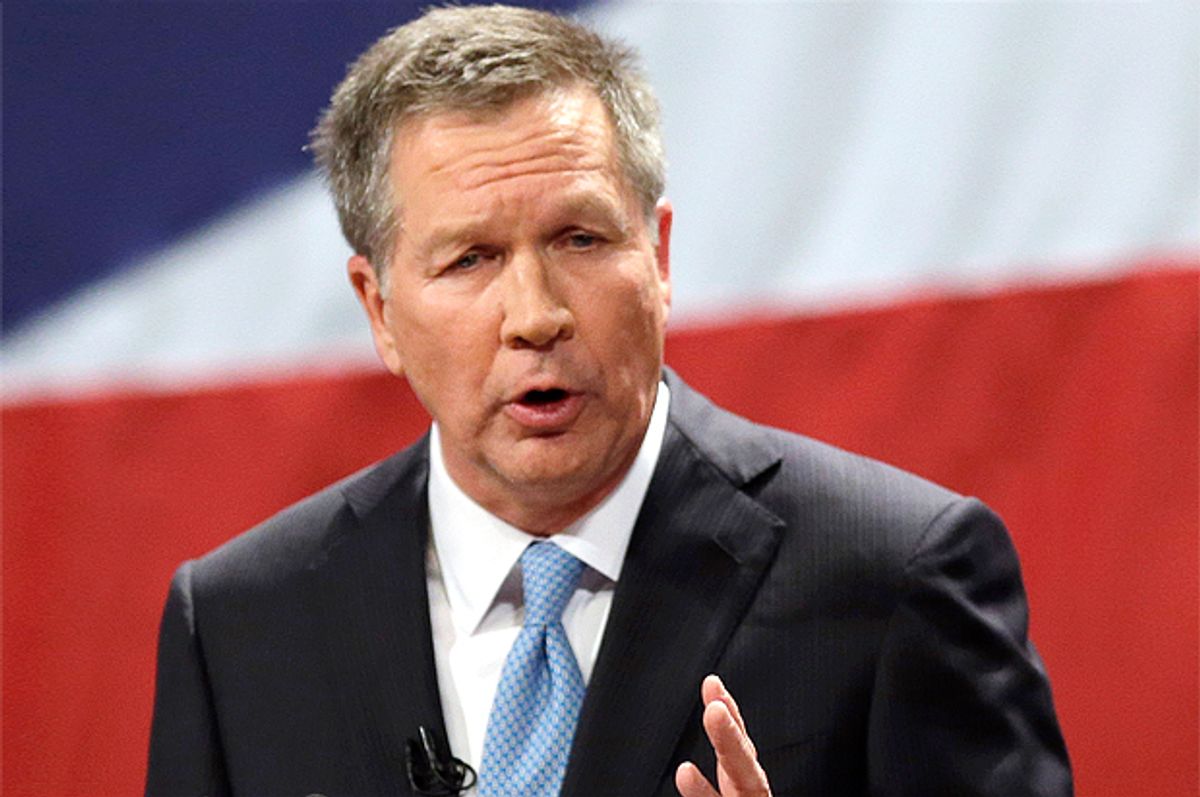The Islamic State may have killed just enough hostages to get the Holy War with the West that it wants. A new CBS poll shows that, for the first time, a majority of Americans (57%) are in favor of sending their neighbors' sons to go fight ISIS on the ground. To deploy ground combat troops, into Syria and Iraq, and wherever else they may surface, for a land war. Over the past six months, these figures have jumped a bit higher with each additional round of executions.
Since, no matter how many members of ISIS are killed, it will be impossible to stop every last execution, this majority will probably increase. And that makes one wonder, too, how the political rhetoric surrounding the issue of ground troops will change, especially with the hawkish rhetoric arms-race that is a GOP presidential primary just beginning.
It may well mean that the consensus GOP candidate opinion goes from a soft "we have to be prepared to send ground troops into Syria and Iraq, if need be" to the harder, Lindsey-Graham position of "we have to send in ground troops now -- but just like 10,000 or so." We should send in ground troops, but not that many, and not for too long, and without much difficulty.
In other words, we'll see the war proposal sold, as they always are, as the ever-elusive "short war" or "weekend war." We just send ~10k of our boys in there -- into Iraq, into Syria -- to kill a bunch of people and then ISIS will be destroyed and the region will be peaceful and we can hightail it out.
Consider Ohio Gov. John Kasich. He's been slow to put together a pre-presidential bid but appears to be getting started with a visit to South Carolina this week. Kasich was a congressman before serving as Ohio governor, so unlike several of the other governors considering running, he has had to think about foreign policy in a professional capacity before. But he admits he's a little rusty and recently has been "studying up on foreign policy and beginning to outline his worldview." As soon as he's finished Outlining His Worldview, he will presumably give a speech Laying Out His Foreign Policy Vision.
In any event, he has studied enough thus far to know that we need to send ground troops into Iraq and Syria to fight a land war against ISIS. But don't worry, he cautions: it's not like such a thing would be difficult:
"It is probably something that can be addressed without an extended affair and without nation-building or any of that,” he said.
Yeah, probably. It'll take 72, 96 hours, tops. It won't require any nation-building, either. We can just leave a vacuum there and be certain that it remains a vacuum. American ground troops -- a few thou, give or take -- can quickly and cleanly solve the long-term problem of regional political disaffection that's fueling ISIS.
This was the sort of oversimplification that helped the Bush administration build strong majority support for the Iraq war at first -- until people saw that that was all bullshit and would actually go on eternally and require many more troops and dollars than estimated.
If a politician really thinks that the United States needs to send in ground troops to stop ISIS from consolidating power and spreading, go ahead and make the arguments, but don't assume that it will be easy to prevent from escalating in troop numbers and duration. How will "victory" be defined? Especially since, just as happened in the Iraq war, terrorists worldwide are going to flock to the front lines as soon as the Americans show up, to get a piece of the action. Et cetera and so on. List the worst-case scenario for such a war. And then let's see how it polls.

Shares